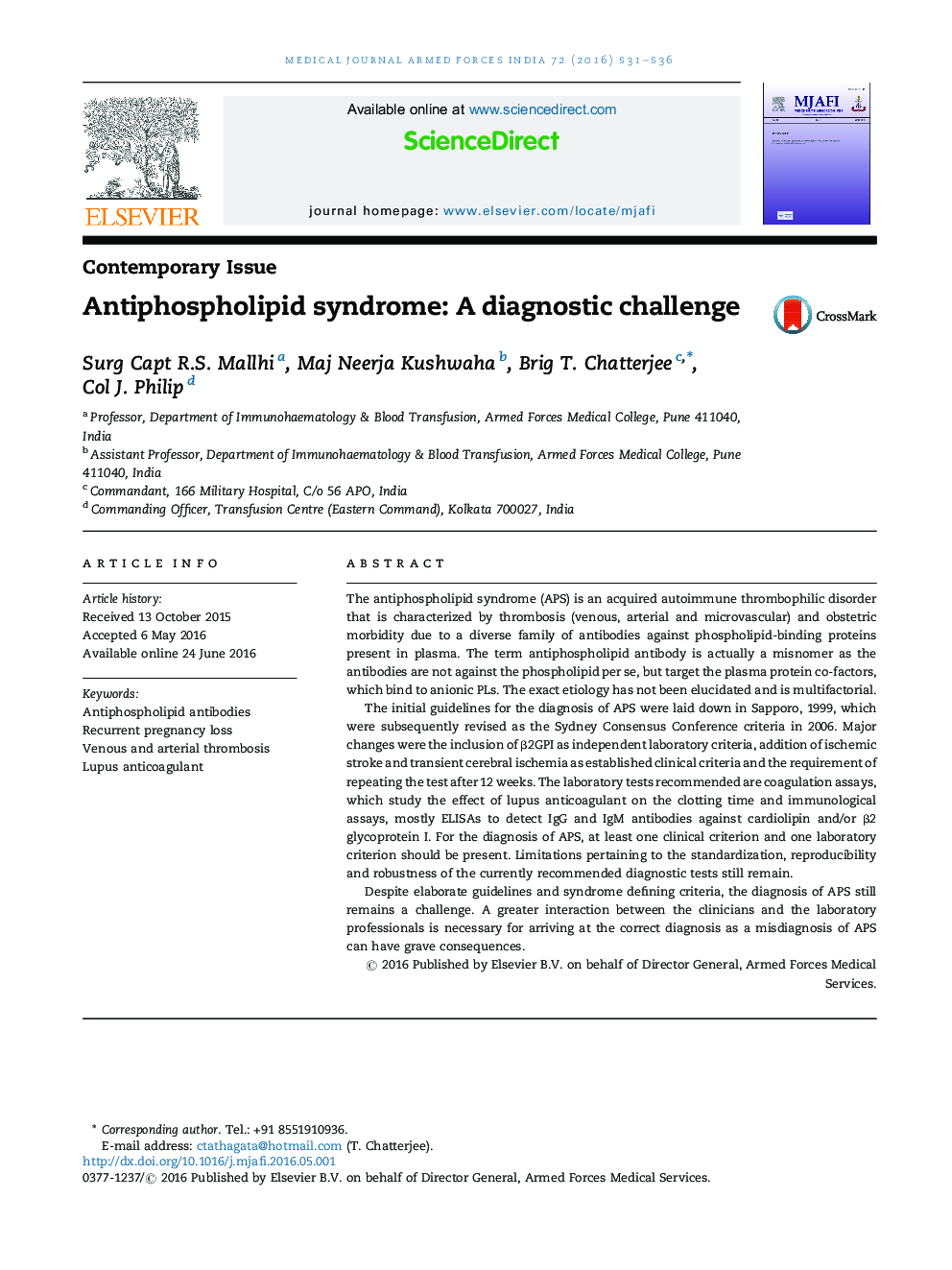| Article ID | Journal | Published Year | Pages | File Type |
|---|---|---|---|---|
| 5642268 | Medical Journal Armed Forces India | 2016 | 6 Pages |
The antiphospholipid syndrome (APS) is an acquired autoimmune thrombophilic disorder that is characterized by thrombosis (venous, arterial and microvascular) and obstetric morbidity due to a diverse family of antibodies against phospholipid-binding proteins present in plasma. The term antiphospholipid antibody is actually a misnomer as the antibodies are not against the phospholipid per se, but target the plasma protein co-factors, which bind to anionic PLs. The exact etiology has not been elucidated and is multifactorial.The initial guidelines for the diagnosis of APS were laid down in Sapporo, 1999, which were subsequently revised as the Sydney Consensus Conference criteria in 2006. Major changes were the inclusion of β2GPI as independent laboratory criteria, addition of ischemic stroke and transient cerebral ischemia as established clinical criteria and the requirement of repeating the test after 12 weeks. The laboratory tests recommended are coagulation assays, which study the effect of lupus anticoagulant on the clotting time and immunological assays, mostly ELISAs to detect IgG and IgM antibodies against cardiolipin and/or β2 glycoprotein I. For the diagnosis of APS, at least one clinical criterion and one laboratory criterion should be present. Limitations pertaining to the standardization, reproducibility and robustness of the currently recommended diagnostic tests still remain.Despite elaborate guidelines and syndrome defining criteria, the diagnosis of APS still remains a challenge. A greater interaction between the clinicians and the laboratory professionals is necessary for arriving at the correct diagnosis as a misdiagnosis of APS can have grave consequences.
